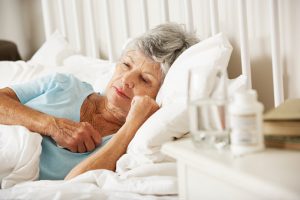
The study was conducted by the Taipei Medical University in Taiwan and followed 62 nursing home patients who were randomly split into two groups. The first group received a 24-minute massage three times a week over the course of eight weeks that focused on specific acupressure points. The second group also had a 24-minute massage three times a week for eight weeks, but acupressure was not used.
The first group—who received acupressure treatment—scored significantly higher on the Pittsburgh Sleep Quality Index, as well as the Short-Form 36, indicating that the quality of their sleep improved and there were less instances of sleep disturbances compared to those who did not receive acupressure treatment.
Acupressure functions similarly to acupuncture, excepting the use of needles. An acupressure practitioner will have you lay on a massage table and stretch out; they massage your body, focusing on specific points that can help reduce muscle tension, improve circulation, and stimulate endorphins to relieve pain and promote relaxation. Acupressure has been found to improve symptoms in patients with nausea, pain, arthritis, and depression, as well as increase sleep quality.
As it is a noninvasive and relatively simple treatment, acupressure could potentially be implemented to better the sleep and overall health of patients. While more research needs to be done in order to understand how this method may affect other portions of the population, these initial results are promising.
Related: 5 most common sleep problems and tips for a good night’s sleep